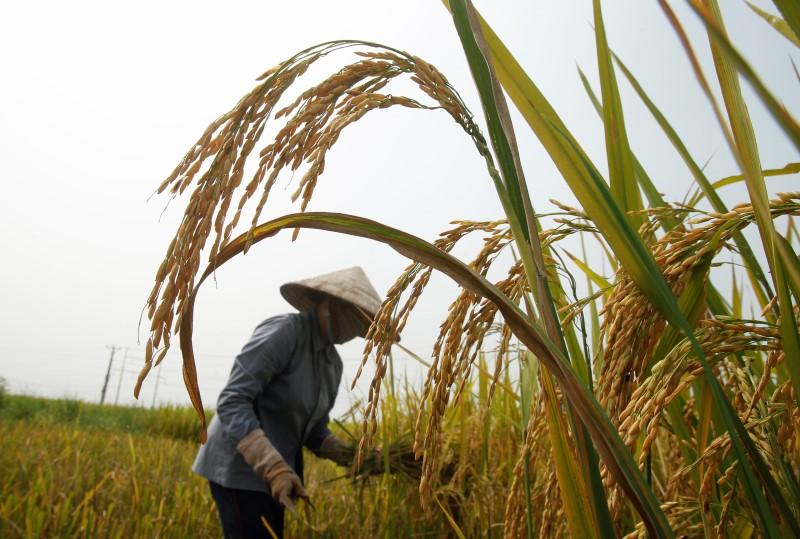A pact between Thailand and Vietnam to raise rice prices would be "impossible", a top Thai industry official said on Monday, amplifying opposition to a government-proposed plan for a rice cartel and questions over its viability.
Thailand's government said on Friday it planned with Vietnam to create a pact between the world's second- and third-largest rice exporters to boost their bargaining power and help mitigate rising production costs.
Vietnam has yet to confirm such a plan was being discussed.
Chookiat Ophaswongse, honorary president of Thailand's Rice Exporters Association, said his body had not been consulted, and the idea was poorly thought out.
"Thailand and Vietnam are not the largest exporters, combined it's less than India and would have buyers turn to competitors," Chookiat told Reuters, adding rice cannot be stored for long enough while awaiting a climb in price.
"Politicians don't understand the rice market and did not discuss this with the association," he said.
His comments are similar to those of the head of Vietnam's food association, who last week said raising prices at a time of global food uncertainty would be unreasonable.
Vietnam's agriculture ministry did not immediately respond to Reuters requests for comment on Monday.
Alongkorn Ponlaboot, adviser to Thailand's agriculture and cooperatives minister, told Reuters Vietnam "agrees in principle that increasing prices would benefit the two countries."
"Whether this is successful, this cannot be answered because there needs to be more discussions," he added.
Cartel 'unlikely'
Top rice exporter India accounts for about 40% of global supply and its prices hit a five-year low last week on a weaker Indian rupee and abundant supply among top exporting countries. Officials said last week India had no plans to limit exports.
India's 5-percent broken white rice is at least $50 per tonne cheaper than that of Vietnam and $100 cheaper than Thailand, dealers said on Monday. Vietnam has in recent years imported some Indian rice for use in beer and animal feed.
"Price mechanisms will not work without India's participation. Indian rice is already far cheaper ... If others raise prices, then it is natural for buyers to shift towards India," said a Mumbai-based dealer with a global trading house.
The dealer said Vietnam and Thailand had lost market share and would need to lower prices to regain it.
A rice trader based in Ho Chi Minh City said a cartel was unlikely with "too many different views on this issue" and because neither country was the top exporter.
"If India curbs exports, prices will rise without Thailand and Vietnam having to form a cartel," the trader said.
Vietnam and Thailand account for about 10% of global production of rough rice, and about 26% of global exports, according to the U.S. Department of Agriculture.
One of the biggest losers from a cartel would be the world's second-biggest rice importer, the Philippines, a big buyer of Thai and Vietnamese rice.
The Philippines' record paddy output last year of 20 million tonnes is insufficient to feed its 110 million people.
Its agriculture department spokesperson Noel Reyes on Monday expressed confidence that technology could help production reach new highs and in "a more cost-effective manner" than Vietnam and Thailand.


















































